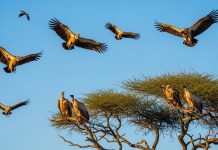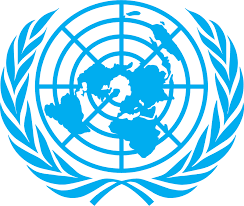The United Nations has spoken out against the unlawful trafficking of wildlife and forest goods, citing inadequate awareness, ineffective laws, and poor enforcement as obstacles to successfully prosecuting wrongdoers.
At this year’s World Wildlife Day commemoration in Abuja on Tuesday, Oliver Stolpe, the Country Representative for the United Nations Office on Drugs and Crime (UNODC), delivered a presentation. The event focused on the theme ‘Connecting People and Planet: Exploring Digital Conservation’ and included the unveiling of the International Consortium on Combating Wildlife Crime (ICCWC) Toolkit Report for Nigeria, presented in collaboration with the UNODC and the UN Food and Agricultural Organization (FAO).
In his statement, he acknowledged the Nigeria Customs Service for their effective work in raising border point seizures, yet highlighted that most seizures related to Nigeria originated from other country’s authorities. He emphasised the importance of improved sharing of information and cooperation with relevant authorities in the countries of origin, transit, and destination. This can lead to intelligence-based operations and potential joint or simultaneous investigations to uncover and dismantle trafficking networks. However, it is also important to enhance interception capabilities. While acknowledging the effective efforts of the Nigeria Customs Service in increasing border point seizures, it was noted that a considerable number of these seizures were linked to authorities in other countries.
According to his remarks, the 2023 UNODC Organized Crime Threat Assessment for Nigeria exposed how Nigeria serves as a major hub for illegal trade in wildlife and forest products, with a focus on pangolin, ivory, and rosewood.
Furthermore, he noted that these products are acquired not only from Nigeria but also from other countries in the region, such as Cameroon, Gabon, the Central African Republic, the Democratic Republic of Congo, Liberia, Cote d’Ivoire, and the Benin Republic. In alignment with data from the UNODC’s World Wildlife Seizures Database spanning the years 2011 to 2020, there are over a thousand records indicating Nigeria’s involvement as a source, transit, or destination country, or where the offender was.
Stolpe highlighted another significant discovery from the research, indicating a rising trend of armed groups engaging in the illicit harvesting and trafficking of rosewood. This disturbing development has led to the tragic loss of nine park rangers’ lives during violent encounters with individuals involved in illegal logging within the Gashaka-Gumti National Park. In a broader context, the findings suggest that illegal logging activities persist, even in the face of the 2018 trade suspension of rosewood from Nigeria.
The UN body urged religious and traditional leaders to collaborate with the government to raise awareness among Nigerians about preserving and safeguarding the country’s diverse biodiversity.
In observance of the World Wildlife Day celebration, Minister of Environment Balarabe Abbas Lawal underscored the crucial role of digital innovation in the conservation of biodiversity and the protection of wildlife.

















